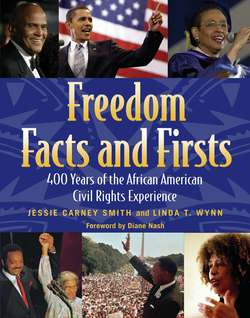Читать книгу Freedom Facts and Firsts - Jessie Carney Smith - Страница 37
На сайте Литреса книга снята с продажи.
Bell, James Madison (1826–1902)
ОглавлениеJames Madison Bell was born April 3, 1826, in Gallipolis, Ohio, and died in 1902 in Toledo, Ohio. An active member of the African Methodist Episcopal Church, he is known as the “Poet of Hope” and the “Bard of Maumee.” Bell’s poetry, like much of the poetry of his day, was better recited than read and was often occasional. The poetry espoused human as well as his own political values. In fact, his poetry was a political tool to speak about the issues of the day (slavery, civil rights, and emancipation) from a black man’s point of view. Consequently, his poetic concerns were more didactic and political than artistic. His themes were liberty, freedom, and hope. On November 9, 1847, he moved to Chatham, Ontario, Canada, and became active in the anti-slavery movement. Here he met and became friends with John Brown. He helped secure funds and support for Brown’s 1859 Harpers Ferry Raid and was one of the signers of Brown’s “Provisional Constitution and Ordinances for the People of the United States.” In 1860, he moved to California, where he was a member of the Fourth California Colored Convention, which fought for suffrage rights. Later, he moved to Toledo and focused on the rights and education of newly freed slaves. He was a representative to the State Republican Convention and a delegate-at-large from Ohio to the 1868 and 1872 Republican National Conventions. He commemorated the Fifteenth Amendment with his ode “The Triumph of Liberty.”
James Madison Bell (Fisk University).
Helen R. Houston
